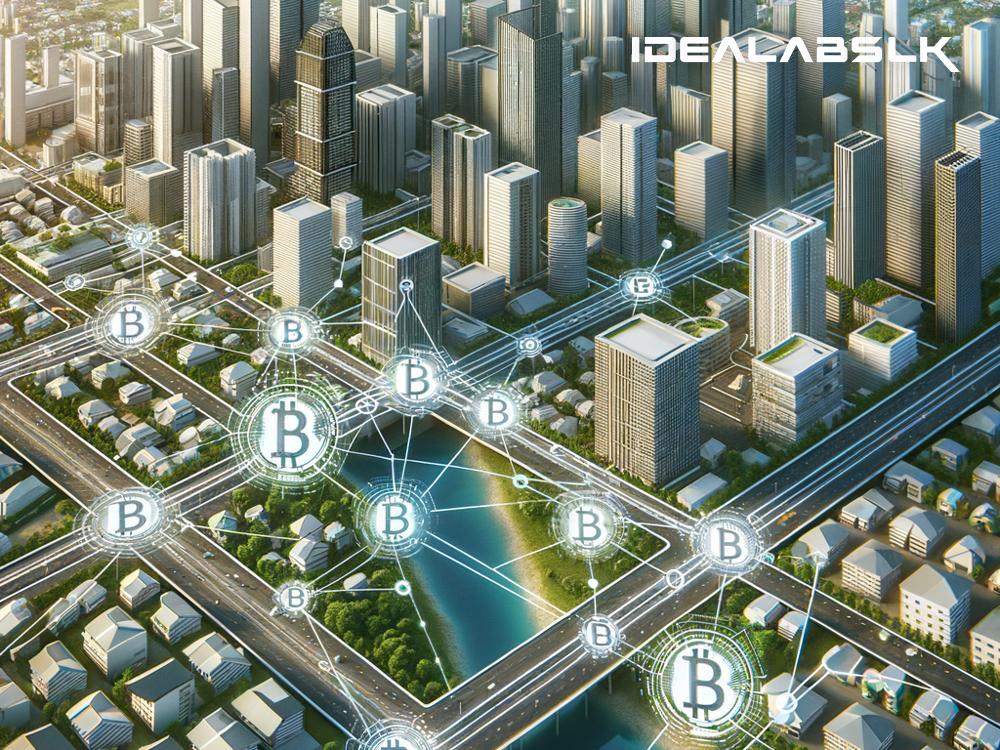Blockchain for Transparency in Real Estate Transactions: A Simplified Guide
The real estate sector, known for its complexity and size, has long struggled with issues related to transparency and efficiency. Traditional processes are often slow, filled with paperwork, and susceptible to fraud. However, a new technology, blockchain, promises to revolutionize this industry by bringing about much-needed transparency and efficiency. But what exactly is blockchain, and how can it redefine real estate transactions? Let's dive into a simple explanation.
Understanding Blockchain
Imagine a digital ledger that is shared among several users. This ledger records all transactions made with a digital currency, like Bitcoin. But, instead of this ledger being stored in one central location, copies of it exist on every user's computer that is part of the network. This means that every transaction is recorded in multiple places at once. If someone tries to alter a record, they would need to change it in every copy of the ledger, which is practically impossible. This system is known as blockchain.
Blockchain’s Role in Real Estate
So, how does a technology primarily associated with digital currencies find its place in real estate? The answer lies in the inherent benefits of blockchain: transparency, security, and efficiency.
1. Transparency
In a conventional real estate deal, there are numerous steps and documents involved, from contracts to transfer records, often requiring third-party verification. This process can be opaque, leaving room for errors or fraud.
Blockchain introduces a system where every aspect of the transaction, from the initial agreement to the final transfer of ownership, is recorded in a transparent manner. Since these records are immutable and publicly verifiable, it significantly reduces the potential for fraud and increases trust among all parties involved.
2. Efficiency
Traditionally, real estate transactions can take weeks or even months to complete due to the need for verification by third parties, legal checks, and the handling of physical paperwork. Blockchain can streamline these processes by enabling instant verification and reducing the need for so many intermediaries. Smart contracts, which are self-executing contracts with the terms directly written into code, can automate many of these steps, making transactions faster and cheaper.
3. Security
The decentralized nature of blockchain ensures that the data recorded on it is spread across a network of computers. This makes it extremely difficult for hackers to compromise the integrity of the system. In real estate, where transactions involve significant sums of money, this added security layer is invaluable.
Real-World Applications
Several startups and established companies are exploring ways to integrate blockchain into real estate. Some applications include:
-
Tokenization: This refers to the process of converting rights to a property into a digital token on the blockchain. This could potentially allow for easier and fractional ownership of real estate, making investment more accessible.
-
Land Registry and Title Management: Countries are beginning to experiment with blockchain for land registries. Sweden, for example, has conducted trials for recording land titles using blockchain, which can dramatically reduce the risk of title fraud and speed up transactions.
-
Lease Contracts: Smart contracts on blockchain can automate the leasing process, executing lease agreements, and even automatically unlocking doors for tenants upon receipt of payment, without any human interaction.
Challenges Ahead
Despite its potential, blockchain in real estate is not without its challenges. Regulatory hurdles, the need for a significant paradigm shift in how transactions are conducted, and technological barriers in terms of scalability and adoption represent significant challenges that need to be addressed.
The Future Awaits
Blockchain's promise in transforming real estate transactions is immense. Its ability to bring transparency, efficiency, and security could solve many of the industry's longstanding problems. While it is still early days, and full-scale adoption is a way off, the potential for disruption is clear. As with any technological revolution, there will be hurdles to overcome, but the foundation is being laid for a future where real estate transactions are safer, faster, and more transparent for everyone involved.
In conclusion, blockchain technology could significantly change the way we buy, sell, or invest in real estate today. By digitizing transactions and making them more transparent, secure, and efficient, blockchain stands ready to tackle some of the biggest challenges facing the real estate sector. While the journey ahead may be long, the potential rewards for everyone involved are too significant to ignore.

